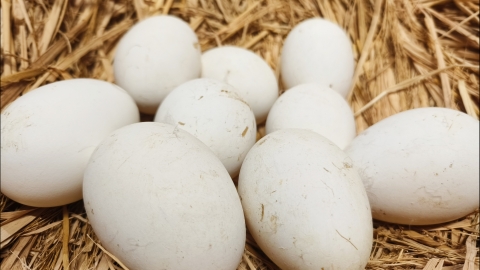Can patients with cholecystitis eat goose eggs?
Generally, patients with cholecystitis can eat goose eggs in moderation. Specific analysis is as follows:

When cholecystitis is in a stable phase, patients may consume small amounts of goose eggs. Goose eggs contain high-quality protein, vitamins, and minerals that help nourish the body. However, the yolk is relatively high in fat; excessive intake may stimulate gallbladder contraction and trigger discomfort. Therefore, consumption should be strictly controlled—typically only a small amount of yolk should be eaten at one time, or it should be consumed together with plenty of vegetables. During an acute episode, when the gallbladder is particularly sensitive, eating goose eggs may increase the burden on the gallbladder and is therefore not recommended.
When consuming goose eggs, it's advisable to use light cooking methods such as steaming or boiling, and avoid frying or using excessive oily seasonings. Intake should be limited, especially the amount of yolk. If symptoms such as abdominal pain or bloating occur after eating, consumption should be stopped immediately. It's important to maintain a balanced diet, include more low-fat, high-fiber foods, have regular follow-up examinations of gallbladder health, and follow doctors' dietary recommendations to prevent disease recurrence due to improper diet.







